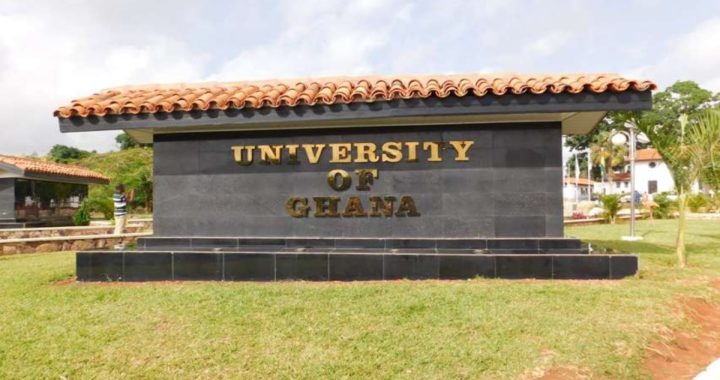How to Become a Rhodes Scholar With Full Scholarship In The US

After reading this post “How to Become a Rhodes Scholar With Full Scholarship In The US” you will be infomed and guided to become a benefitiary of this prestigous scholarship.
Recipients of this prestigious award must exhibit academic excellence, leadership and a commitment to service.
Because of its prestigious reputation, the Rhodes scholarship draws applications from thousands of the world’s top college students each year. But only a select few who best demonstrate academic excellence, a commitment to others and character traits like courage and kindness are chosen for the scholarship, which allows students to study at the University of Oxford in the United Kingdom.
There’s a level of cachet that comes with being a Rhodes scholar, but that’s just one aspect that draws students to apply.
“It’s an honor that will be mentioned in every introduction to every speech they give for the rest of their life, and will be mentioned in their obituary decades from now,” Doug Cutchins, director of global awards at New York University Abu Dhabi, wrote in an email. “It means being connected to other extraordinary young people at Oxford for several years, and then being introduced into a global alumni community of amazing people who are working for the common good. It can open doors that they don’t even know exist right now.”
What Is a Rhodes Scholarship?
The Rhodes scholarship is managed by the Rhodes Trust, a British charity created to honor the wishes of Cecil Rhodes, a British businessman and politician who established the scholarship in his will. The first scholars arrived at Oxford in 1903, making it the oldest international scholarship.
Each year, the Rhodes Trust selects roughly 100 students from around the world, including 32 Americans, through an intensive application and interview process. The organization doesn’t reveal the number of applicants.
The scholarship covers tuition and fees for at least two years of study at Oxford, where scholars can earn a second bachelor’s degree, a master’s degree or a doctorate degree in one of various subjects.
Scholarship winners must still apply for admission to Oxford, and the scholarship covers application fees. The scholarship also covers the fee for a student visa, flights to and from the U.K., health care coverage and an annual stipend for living expenses – nearly $25,000 for the 2023-2024 academic year.
The total amount of the scholarship varies but can reach about $250,000, representatives at the Rhodes Trust say.
Eleanor Wikstrom, a senior at Harvard University in Massachusetts and winner of a Rhodes scholarship to begin studying at Oxford in fall 2024, says the value of the Rhodes goes beyond the doors it will open. A social studies major with a focus on colonialism, she plans to earn a master’s degree in global and imperial history at Oxford. The ability to study that period of history in the U.K. with students from around the world was a major draw for the scholarship, she says.
“I also think that Rhodes offers this really amazing cohort that is not quite as prevalent with any other scholarship,” Wikstrom says. “Of course, you’re going to be part of an amazing legacy no matter what you do, but the Rhodes scholarship being expressly global and also having this locus at Oxford allows you to interact with scholars from other backgrounds, and it facilitates that much more fluently than the other scholarships would.”
Who Can Apply for a Rhodes Scholarship?
Requirements vary by country, but in the U.S., students must be at least 18 years old and not have passed their 24th birthday on Oct. 1 of the year in which they are applying.
In some instances, older applicants who completed their undergraduate degree later than usual may apply up to age 27, according to Babette Littlemore, director of communications at the Rhodes Trust. Applicants also must have completed or will have completed a college or university undergraduate degree with a GPA of 3.7 or higher.
The scholarship’s eligibility requirements for U.S. students have been expanded in recent years to include legal permanent residents and DACA recipients, which refers to an immigration program called Deferred Action for Childhood Arrivals.
The list of countries from which students can apply has expanded, as well. “With the arrival of the Global Rhodes Scholarships, individuals from any country across the globe are now able to apply,” Littlemore wrote in an email.
Applicants are chosen by “constituency,” which is the country, region or district where they live. Applicants who have dual citizenship or have lived in multiple countries should choose the country they have the strongest connection to, such as where they have citizenship or where they’ve lived the longest, according to the Rhodes Trust website.
U.S. states and territories are grouped into 16 districts. U.S. applicants typically choose the district in which they have a permanent residence or have spent the most time.
Who Should Apply for a Rhodes Scholarship?
Because of the competitive nature of the applicant pool, successful applicants typically possess at least a 3.9 GPA, says Kyle Mox, associate dean of national scholarship advisement at Arizona State University. But strong academic chops are just one part of the equation, experts say.
The scholarship has continued to promote largely the same values and qualities over the course of its existence, including leadership and public service. The selection committee is looking for applicants “that are going to provide value to the world,” Mox says.
“It is intensely service-driven,” he says. “Any students that I’ve worked with who have succeeded, progressed and have been offered the award were passionately motivated by a desire to serve the world. They were high-achieving but not for the sake of being high-achieving. They were high-achieving because they had things they wanted to fix. That’s got to come through in the application.”
Because applicants must still apply to Oxford after being awarded the scholarship, the committee looks for well-rounded students who would be easily admissible, Cutchins says.
“They have to have excelled in multiple areas, and at least ticked the box in most if not all of the major facets of student life: athletics, service, the arts, etc.,” he says. “Someone smarter than me once said that Rhodes scholars are ‘well rounded with a bump.’ They are good at everything, and exceptional in one or more dimensions.”
Students should take an honest look at their achievements and determine if they meet the criteria, he says. He encourages students who are on the fence to apply, even though “the vast majority of students who apply for the Rhodes – 98%+ – are not going to win.”
The application and interview process can be an immensely beneficial experience for students as they embark on their professional life, he says.
“I usually set a low bar, asking students if they are feasible, realistic, plausible candidates,” he says. “If a student wants to be a Rhodes scholar, then I think they should make someone else say no to them, rather than them saying no to their own goals.”
Rhodes Scholarship Application Process
To become a Rhodes scholar, students are typically encouraged to apply during their junior year of college, experts say. The online application opens in early July each year and closes in early October.
Individual schools often set varying internal deadlines for different checkpoints within the application. While students are explicitly prohibited from receiving help on the personal essay, many schools help guide them through various aspects of the application, such as interview preparation.
1. Required Application Materials
While several pieces of the application are consistent across all constituencies, some details among them change, Cutchins says. All selection committees require a 750-word, original personal statement and a 350-word academic statement. Applicants must also supply an official transcript, a full resume and five to eight letters of reference.
“All constituencies ask that some of the letters are written by people who can comment on the student’s academic ability and others serve as character references,” he says. “Some constituencies detail the exact number of each kind of letter that should be submitted.”
The personal essay should be an incredibly strong and original piece of writing, experts say.
2. University Endorsement
To be considered for the scholarship, applicants must first be nominated and endorsed by their university. Then applicants compete with others within their constituency, or district.
During the endorsement round, many universities organize a nomination committee, which typically consists of faculty members, staff and, if possible, Rhodes scholar alumni, Mox says.
When students are nominated, the university produces an endorsement letter signed by the university president or a high-ranking dean. This endorsement should include confirmation that the student has satisfied or will satisfy the requirements to receive a bachelor’s degree in the year following the submission of the application, if the student is an undergraduate
3. National Round and Interviews
Shortlisted candidates must attend a district reception and interview in November, after which each district committee selects a maximum of two winners.
Wikstrom says she was alerted roughly two weeks prior that she was selected for an interview. In that interim, several fellowship advisers at Harvard conducted intense mock interviews and held a mock reception.
Though the reception is not an official part of the selection process, “if you say something during that reception, it is fair game during the interview,” Wikstrom says, so it’s worth preparing for.
The Importance of Being Authentic
While it’s wise to prepare, experts say the selection committee values authenticity. Wikstrom says some of the feedback she got during mock interviews was to be less “canned” and show her natural personality more. She spent the final days leading up to the interview re-reading her favorite books, pieces she wrote and essays she wrote in class.
“I wanted to steep myself in those materials that meant a lot to me and were really formative for the way I thought about things. There’s nothing that you can do in that last week or last two weeks that will save you. There’s no new fact you’re going to learn. There’s no new method that’s going to save you. You are the sum of everything you’ve done up to that point. You just kind of have to trust the muscle memory will be there when you need it to be there.”
Source: Eleanor Wikstrom, Harvard University Class of 2024, Rhodes scholar: usnews.com/
Send Stories | Social Media | Disclaimer
Send Stories and Articles for publication to [email protected]
We Are Active On Social Media
WhatsApp Channel: JOIN HERE
2024 BECE and WASSCE Channel - JOIN HERE
Facebook: JOIN HERE
Telegram: JOIN HERE
Twitter: FOLLOW US HERE
Instagram: FOLLOW US HERE
Disclaimer:
The information contained in this post on Ghana Education News is for general information purposes only. While we endeavour to keep the information up to date and correct, we make no representations or warranties of any kind, express or implied, about the completeness, accuracy, reliability, suitability or availability with respect to the website or the information, products, services, or related graphics contained on the post for any purpose.



 Teacher Unions Start Regional Demo With Volta Region On May 3rd
Teacher Unions Start Regional Demo With Volta Region On May 3rd  How to buy UG Admission Voucher with Momo/Shortcode
How to buy UG Admission Voucher with Momo/Shortcode  Top 5 Universities in the Netherlands for Masters Studies
Top 5 Universities in the Netherlands for Masters Studies  52 years ago, Ghana’s first president, Dr. Kwame Nkrumah, died in Bucharest, Romania.
52 years ago, Ghana’s first president, Dr. Kwame Nkrumah, died in Bucharest, Romania.  The Poll Tax Ordinance of 1852
The Poll Tax Ordinance of 1852